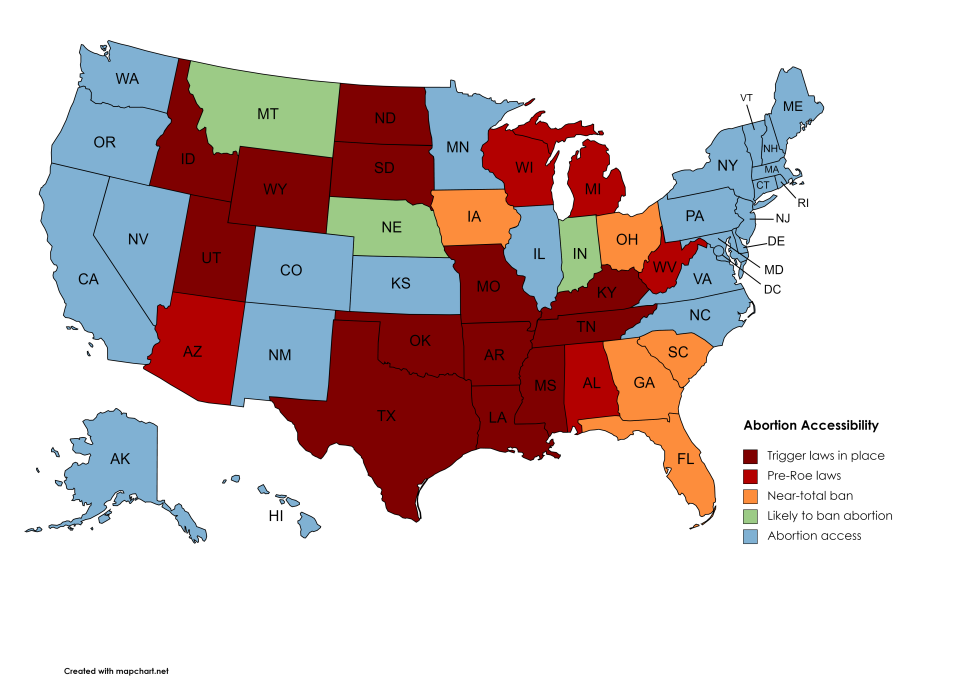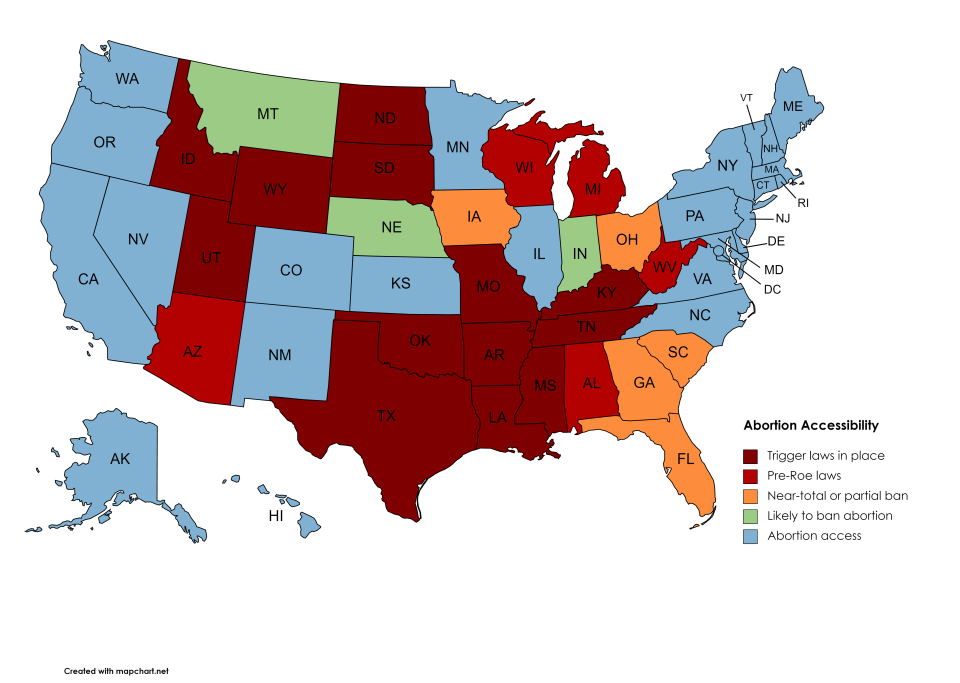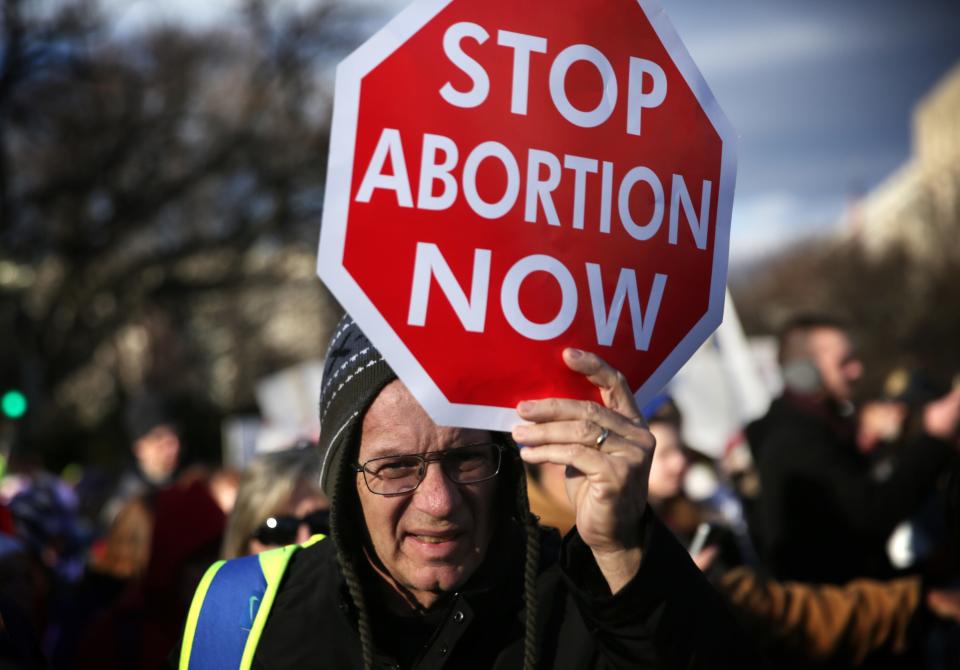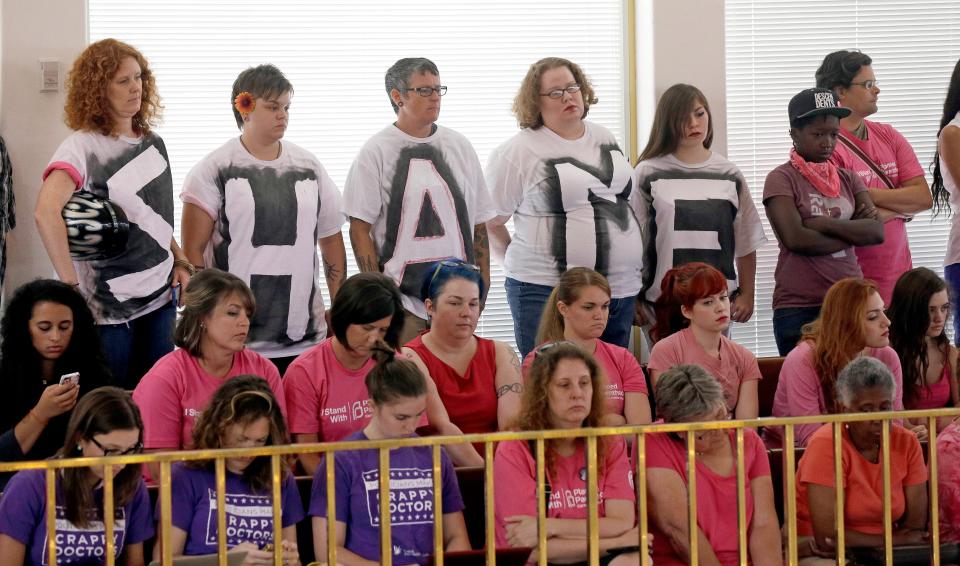Over the years, North Carolina laws protecting access to abortion have shifted, tightened
The history of reproductive rights in North Carolina is nothing if not eventful.
Over the past 50-plus years, state laws regarding access to abortion have changed numerous times, generally becoming more restrictive.
Now that the United States Supreme Court has overturned Roe v. Wade, in theory handing full decision-making on the issue back to individual states, abortion-access laws in North Carolina could be changing yet again — especially if Republicans can obtain a legislative supermajority in November's mid-term elections.
Even with Roe v. Wade being overturned on June 24, North Carolina is among the states that would continue to have some access to abortion, with some restrictions.


More: Abortion news: Latest updates on Roe v. Wade decision
More: What does the Supreme Court abortion ruling mean for NC? 3 things you need to know
When Roe v. Wade was decided by the Supreme Court in 1973, legalizing abortion, North Carolina was one of just a few states nationwide in which doctors were allowed to perform abortions under certain conditions, including cases involving rape, incest and when the health of the mother could be endangered by carrying a baby to term.
Six years earlier in 1967, according to a 1999 article in the Campbell Law Review, "North Carolina became the second state in the nation to remove meaningful restrictions on abortions performed by doctors."
The 1973 passage of Roe meant, in theory, that women of all income levels in North Carolina would now have access to abortions. Almost immediately, however, access began to be restricted.
Not long after the Roe ruling came down, North Carolina passed a law dictating that abortions after the 20th week of pregnancy could only be performed in hospitals and only then in emergency situations. The law also contained a so-called "conscience clause" allowing medical personnel to opt out of participating in any procedures that might result in an abortion.
More: What does the Supreme Court abortion ruling mean for NC? 3 things you need to know
In 2019 the 20-week ban was overturned by a federal appeals court, and the ruling was upheld by an appeals court last year. Now that the Supreme Court has overturned Roe. v. Wade, however, the 20-week ban is back in place.

In 1977, Congress passed the Hyde Amendment, which blocks the used of federal money to fund abortions. Since many low-income women rely on the federally funded Medicaid program to pay for healthcare, this meant that these women would have to bear the full financial costs of getting an abortion.
In response to this, according to the Campbell Law Review article, in 1978 North Carolina under then-Gov. Jim Hunt created a state fund to help women pay for abortions.
The existence of this fund became politically contentious, and access to it was restricted almost immediately in various ways, including not allowing the fund to be used by minors seeking an abortion. In the 1990s, North Carolina adopted a parental consent law for minors seeking an abortion.
By the end of the '90s, the state abortion fund was all but inaccessible to most women due both to being underfunded and to the many restrictions that had been placed on its use. After Republicans won a super-majority in the General Assembly in 2010, the fund was removed from the state budget.

The Republican takeover in 2010 ushered in more restrictive state abortion laws, notably the Woman's Right to Know Act, which was passed when Gov. Bev Perdue's veto was overridden in 2011.
The new law required women to wait 24 hours to get an abortion after first visiting a clinic, to get a vaginal ultrasound at least four hours before an abortion and to get counseling during which the woman must look at the ultrasound images and abortion providers must explain certain things about the fetus, including its dimensions.
Later in the 2010s, North Carolina would ban state employee health plans from covering abortions, with some exceptions, and banned Affordable Care Act health plans in North Carolina from covering abortions, also with exceptions for rape, incest and health of the mother.
In 2015, the Women and Children’s Protection Act increased the waiting period to get an abortion from 24 to 72 hours, among the longest in the United States.
Since Democratic Gov. Roy Cooper was elected in 2016, no new restrictions have been enacted in North Carolina.
Contact John Staton at 910-343-2343 or John.Staton@StarNewsOnline.com.
This article originally appeared on Wilmington StarNews: NC history: state laws protecting abortion have tightened

